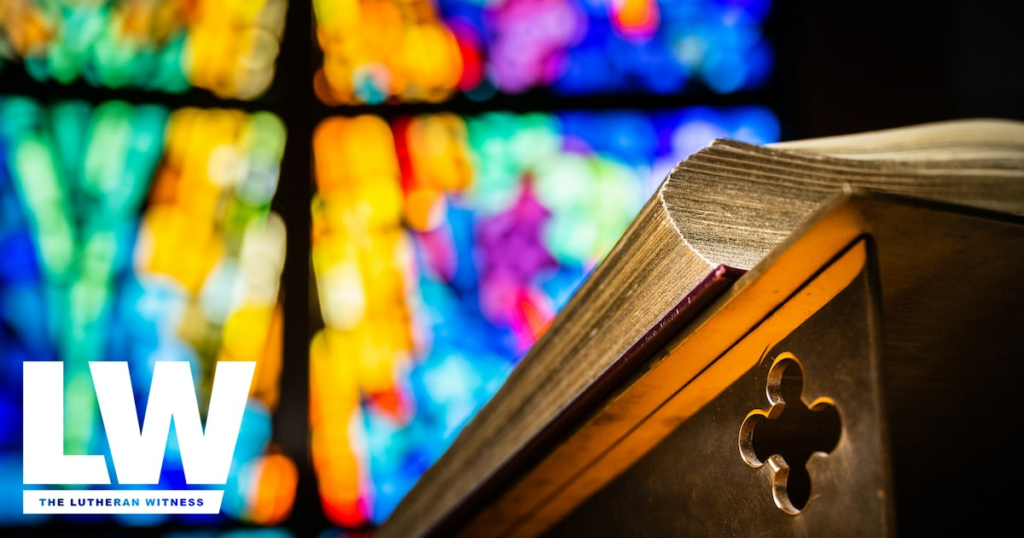by Adriane Dorr
A food shortage, lack of water, starving Somalian refugees and hungry Kenyan Lutherans: Each of these hardships, caused by the current drought in East Africa, is cause for the Rev. Walter Obare Omwanza, presiding bishop of the Evangelical Lutheran Church in Kenya (ELCK), to pray. But Obare and the members of the ELCK are no strangers to the unique challenges facing the church in Kenya. They are also fighting malaria, a deadly disease that kills nearly a million people each year.
Obare knows firsthand how devastating malaria can be; of his parents’ 14 children, 10 died of malaria. But with the help of the Lutheran Malaria Initiative (LMI), a partnership of Lutheran World Relief and The Lutheran Church—Missouri Synod, Obare believes that, by God’s love and mercy, the people of the ELCK have hope for preventing the disease and for renewing the health of those who have contracted it.
The following is an edited Lutheran Witness (LW) interview with Obare (WO):
LW: What part of being a pastor, specifically a pastor of an entire church body, brings you the most joy?
WO: I am blessed to be able to assist when heads of departments and pastors call in to consult on challenges they face as they serve the Lord in His vineyard. It also brings me great joy to counsel young men and women in matters pertaining to our faith.
LW: In this issue of The Lutheran Witness, we feature an update on LMI. How is this program helping the people of your church?
WO: The malaria awareness programs are helping many of our people learn to take precautions and to take immediate steps to visit health facilities if they think they have contracted malaria.
LW: You know firsthand what it means to lose someone to malaria, since you have lost several siblings to the disease. How has this loss drawn you closer to Christ, even in the midst of such suffering?
WO: Ten of my parents’ 14 children died because of malaria. So it is hard to imagine how one could totally escape from malaria at a time when ignorance about the disease is high and when people here attribute ailments of any kind to witchcraft. This makes me believe that God had a purpose for me to live, and that purpose is to serve Him and others, even in creating awareness concerning malaria and other ailments.
LW: Why is it important for the people of the LCMS to assist the ELCK in eradicating malaria?
WO: It is God’s will that we serve Him by serving others, those that He wants us to serve. With help from the LCMS, the ELCK is able to help combat malaria and to restore many of our people to good health.
LW: Representatives from the ELCK recently attended the first ever International Disaster Response Conference for Lutherans in St. Louis. How did your church’s representatives find that conference helpful?
WO: Their report was that it was an eye-opener and that it was good that they could share the dangers of malaria and other pandemics like poverty. They were heartened to see brethren ready and willing to help eradicate malaria.
LW: What makes the Lutheran Church’s understanding of mercy unique? Why is it different from social-aid agencies?
WO: The Lutheran understanding of mercy stands out because it seeks to serve God by serving others. It is God extending His love to our neighbors through us as Christians. We are simply reaching out with the Great Commission using the greatest commandment.
LW: What can the people of the LCMS pray for with regard to the ELCK?
WO: We call for prayers for fellowship with our partners in LCMS to continue, for peace and unity in the church and nation. We also ask that the Lord would open doors for work in the northeastern part of Kenya, which is dominated by Muslims and serves as an entrance by Islamic militia (Al-shabaab) groups to attack the people of Kenya.
LW: When you are in the parishes and homes of the people in your church, what do you see that encourages you to continue the work the Lord has called you to do?
WO: With each year, our church continues to grow. And with each day, I am encouraged by the way people respond to the Gospel in spite of the economic, health and other challenges they face.
—
> Bishop Obare preached at the installation of LCMS President Matthew C. Harrison.
About the author: Adriane Dorr is managing editor of The Lutheran Witness.
January 2012






